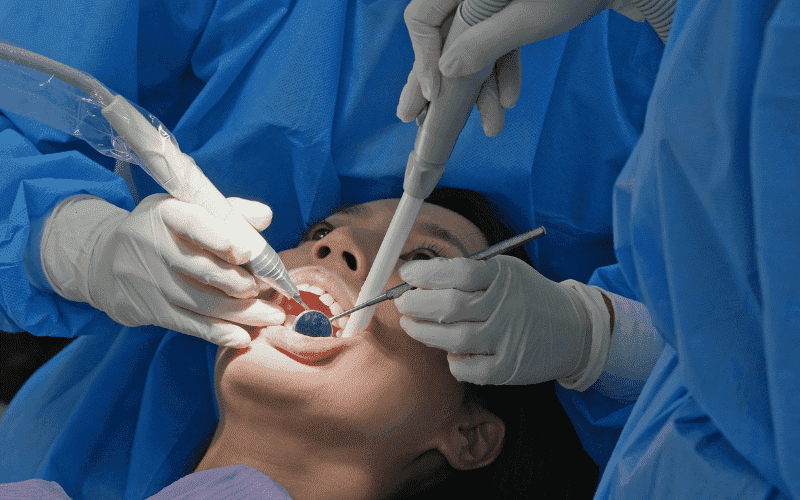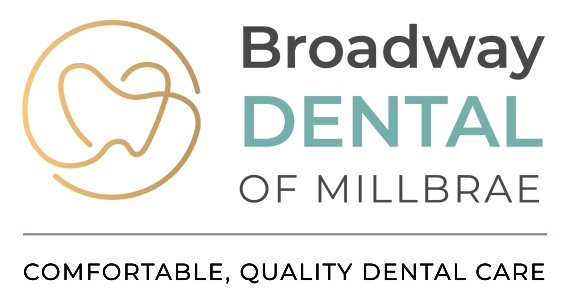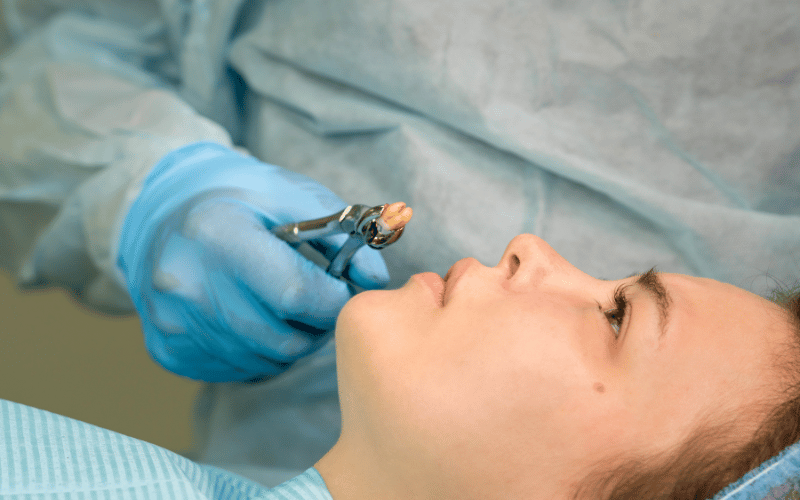Book Now
How to Recover Fast from Oral Surgery
Millbrae, CA

Oral Surgery can be a daunting prospect. The anticipation of pain, swelling, and discomfort can be overwhelming. However, with proper care and attention, you can significantly speed up your recovery process. In this blog, we’ll provide essential tips and information to help you bounce back quickly after your oral surgery.
Understanding the Recovery Process
The duration of recovery after oral surgery varies depending on the procedure performed. However, there are general guidelines to follow that can expedite healing. It’s crucial to understand that patience is key. Your body heals itself over time, and hurrying the process can cause problems.
Essential Tips for a Speedy Recovery
- Rest is Paramount: Immediately following your oral surgery, prioritize rest. Steer clear of demanding tasks and get lots of rest. Your body may now concentrate its energies on healing as a result.
- Ice Packs, Your Best Friend: Applying ice packs to the affected area can help reduce swelling and pain. Wrap an ice pack in a thin cloth and apply it for 20 minutes at a time, several times a day.
- Soft Foods Delight: Opt for soft foods like yogurt, pudding, applesauce, and soup during the initial days of recovery. You can gradually add softer solid foods as your mouth heals.
- Stay Hydrated: Drinking plenty of water is essential for overall health and aids in recovery. Avoid using straws as the suction can dislodge blood clots.
- Gentle Oral Hygiene: Maintain good oral hygiene by brushing gently and using a soft-bristled toothbrush. Avoid the surgical site and rinse your mouth with warm salt water to prevent infection.
- Medication Management: Adhere to the prescribed pain medication and antibiotics as directed by your oral surgeon. These medications aid in pain relief and infection control.
- Avoid Tobacco and Alcohol: Smoking and alcohol can impede the healing process. Refrain from using these substances during recovery.
- Watch for Warning Signs: Be aware of potential complications like excessive bleeding, severe pain, swelling that doesn’t subside, or signs of infection. If you experience any of these, contact your oral surgeon immediately.
Common Oral Surgeries and Recovery
Different oral surgeries require varying recovery periods. Here’s a brief overview:
- Wisdom Teeth Removal: Recovery time typically ranges from a few days to a week. Pain, swelling, and discomfort are common, but they usually subside within a few days.
- Dental Implant Placement: The healing process can be longer, as dental implants require bone integration. The entire healing process could take several months.
- Bone Grafting: Similar to dental implants, bone grafting involves a longer recovery period due to the need for bone regeneration.
When to Contact Your Oral Surgeon
While it’s normal to experience some discomfort and swelling after oral surgery, certain signs may indicate a potential issue. Make quick contact with your oral surgeon if you encounter:
- Severe or persistent pain
- Excessive bleeding
- Swelling that worsens after a few days
- Difficulty swallowing or breathing
- Signs of infection, such as fever, pus, or bad taste in your mouth
Choosing the Right Oral Surgeon
Selecting a qualified and experienced oral surgeon is crucial for a successful procedure and smooth recovery. Consider factors such as the surgeon’s credentials, experience, patient reviews, and the dental facility’s amenities.
Oral Surgery in Millbrae doesn’t have to be a stressful experience. By following these tips and seeking professional guidance, you can significantly enhance your recovery process. Remember, patience and proper care are essential for a successful outcome.
Managing Anxiety Before Oral Surgery
It’s completely normal to feel anxious before oral surgery. Understanding what to expect and implementing relaxation techniques can significantly alleviate your worries. Here are some tips to help you manage your anxiety:
Communicate Your Concerns
- Talk to your oral surgeon: They understand your concerns and can provide reassurance and information about the procedure.
- Share your feelings with loved ones: Talking about your anxiety can help reduce its impact.
Relaxation Techniques
- Practice deep breathing: To relax your nervous system, concentrate on taking slow, deep breaths.
- Meditation or mindfulness: These practices can help center your thoughts and reduce anxiety.
- Yoga or tai chi: Gentle physical activity can promote relaxation and reduce stress.
- Progressive muscle relaxation: Tense and release different muscle groups to relieve physical tension.
Prepare Mentally and Physically
- Gather information: Understanding the procedure can help reduce uncertainty.
- Create a calming environment: Surround yourself with comfort items like your favorite blanket or pillow.
- Get enough sleep: Adequate rest can help you feel more prepared and resilient.
- Avoid stimulants: Limit caffeine and alcohol as they can increase anxiety.
Additional Tips
- Visualize a positive outcome: Imagine the surgery going smoothly and your recovery being quick.
- Bring a support person: Having someone with you can provide comfort and support.
- Consider relaxation techniques like listening to music or aromatherapy.
Oral surgery can be a daunting prospect, with the anticipation of pain, swelling, and discomfort. However, with proper care and attention, you can significantly speed up your recovery process. Remember, rest is paramount, ice packs are your best friend, and maintaining a soft foods diet and good hydration is essential. Adhering to your medication schedule, practicing gentle oral hygiene, and avoiding tobacco and alcohol are crucial for a smooth recovery. Be vigilant for warning signs and contact your oral surgeon immediately if any complications arise.
By following these tips and seeking professional guidance, your recovery from oral surgery can be smooth and swift. Remember, patience and proper care are essential for a successful outcome.



